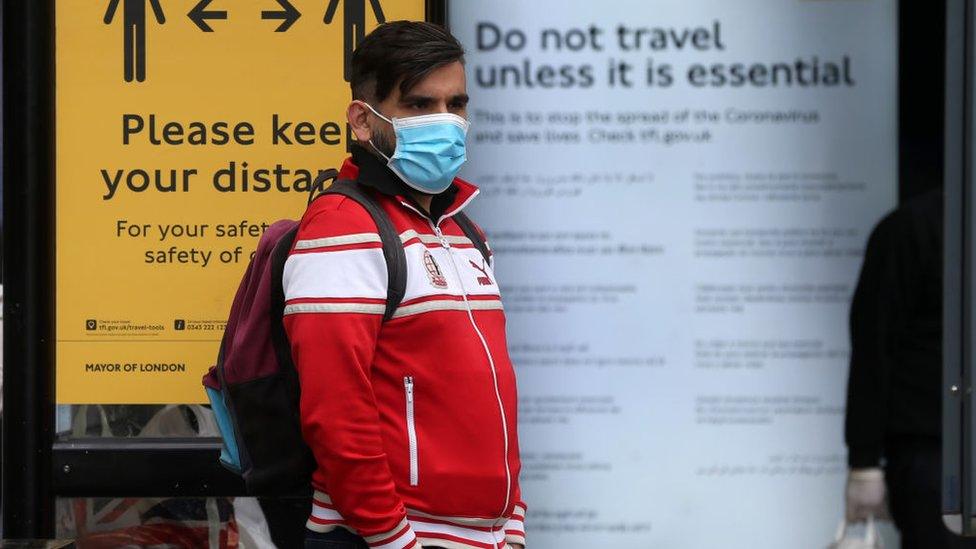Coronavirus: Commuters told to 'prepare to queue' in new guidance
- Published
- comments
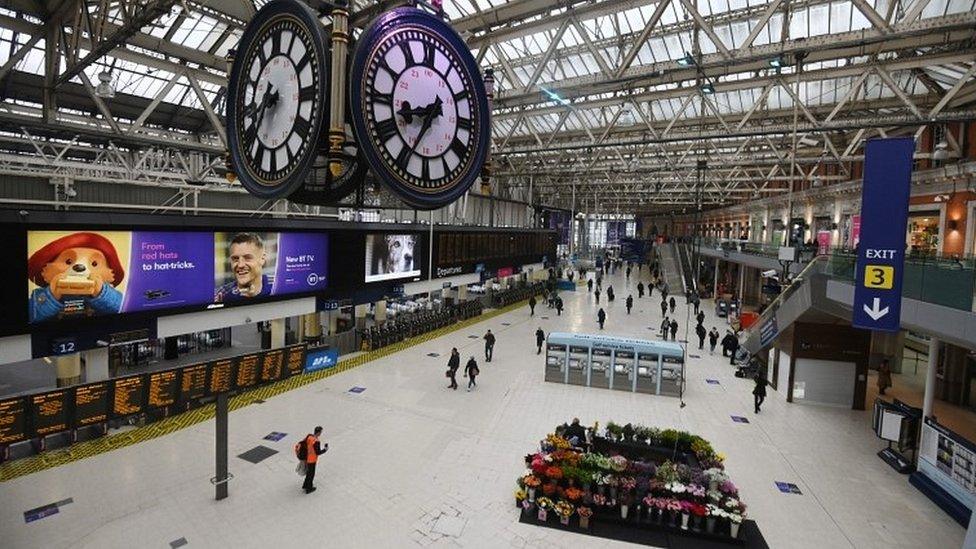
Waterloo railway station has been quiet during the lockdown
Commuters who will be using public transport to return to work are being warned to be "prepared to queue", in new guidance issued by the government, external.
With more workplaces opening up on Wednesday, people have been urged to avoid public transport if possible.
But for those who do have to use it, the guidance says: "Travel may take longer than normal on some routes."
People who do travel have been warned services will carry "as few as a tenth of the usual number of passengers".
Robert Nisbet, of the Rail Delivery Group, which represents train operators and Network Rail, said: "We need everyone's help to keep trains for those who really need them, so please only use the railway if you absolutely have to."
The government is asking people to consider cycling, walking or driving to work if possible.
"If you do travel, thinking carefully about the times, routes and ways you travel will mean we will all have more space to stay safe," its guidance adds.
"Plan ahead by identifying alternative routes and options in case of unexpected disruption."
Passengers should keep 2m (6ft) apart from others wherever possible and avoid the rush hour where feasible. They are also being asked to wait for others to get off before boarding and to be prepared to queue or use a different entrance or exit at stations.
People are also advised to wash their hands before and after travelling, and to be considerate to fellow commuters.
The guidance adds that passengers should, if possible:
Travel at off-peak times
Book tickets online
Take a less busy route
Start or end your journey at a less busy station
Commuters have also been asked to wear a face covering while travelling, if they can.
Anthony Smith, chief executive of independent watchdog Transport Focus, said many passengers would welcome that advice.
He added: "It's important that the transport industry now builds on this guidance so passengers using buses, trains and trams are clear what to expect from their operator as well as what's expected of them."
Transport operators have been given guidance to ensure stations and services are regularly cleaned.
Transport Secretary Grant Shapps said: "We can all play our part by following the advice and reducing pressure on public transport."
'Mixed message'
Service levels on public transport have been reduced to about 50% around the UK since the lockdown came in. They are due to rise to about 70% from next Monday.
Staff at stations have been mobilised to help passengers, there is extra signage and more announcements are being made.
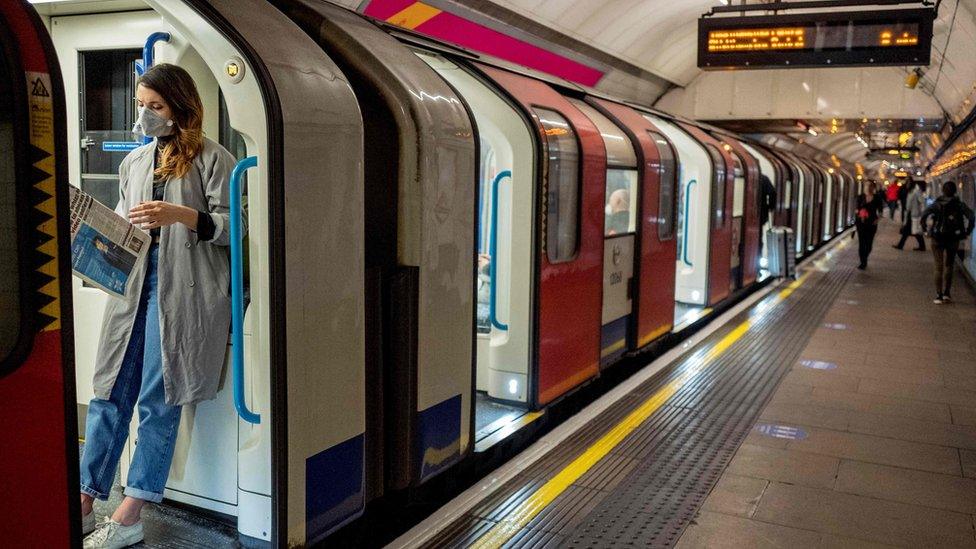
Commuters have been advised to wear face masks
However, rail unions have said they are worried about a rise in the number of people using the transport network.
At the start of May, before lockdown restrictions were slightly eased in England, the leaders of the Aslef, TSSA and RMT unions sent a joint letter to Prime Minister Boris Johnson.
It said: "We have severe concerns over attempts by operators to increase service levels.
"It sends out a mixed message that it is OK to travel by train, despite official advice suggesting otherwise.
"We are not convinced that there is any basis at this time for a safe escalation of services."
And one traveller told the BBC: "I'm a key worker who relies on commuting to and from work. Are you telling me that I might have to wait hours to even get on the train, because non-key workers are being told to go back to work?
"I guess the livelihoods and wellbeing of the people I care for aren't important any more."

LOCKDOWN UPDATE: What's changing, where?
SCHOOLS: When will children be returning?
EXERCISE: What are the guidelines on getting out?
THE R NUMBER: What it means and why it matters
LOOK-UP TOOL: How many cases in your area?

- Published8 May 2020
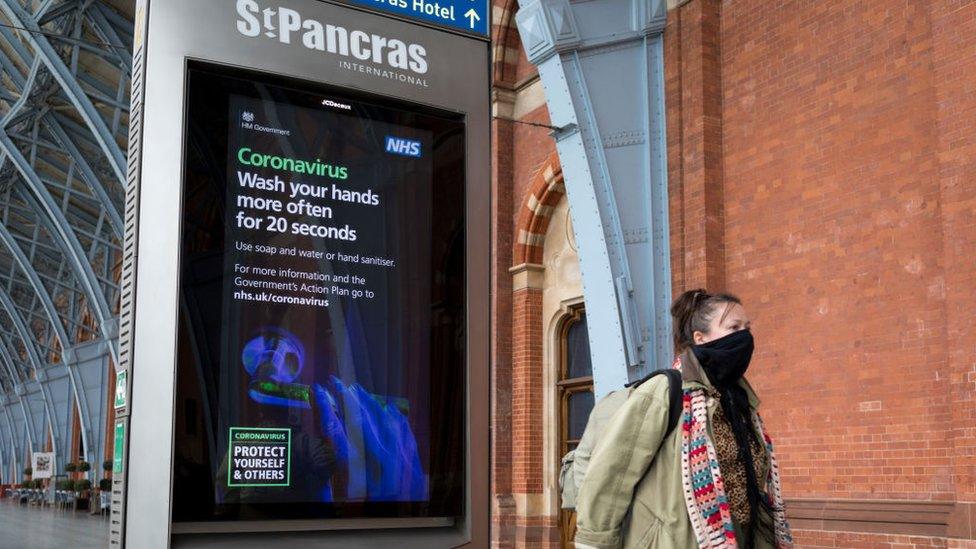
- Published25 April 2020
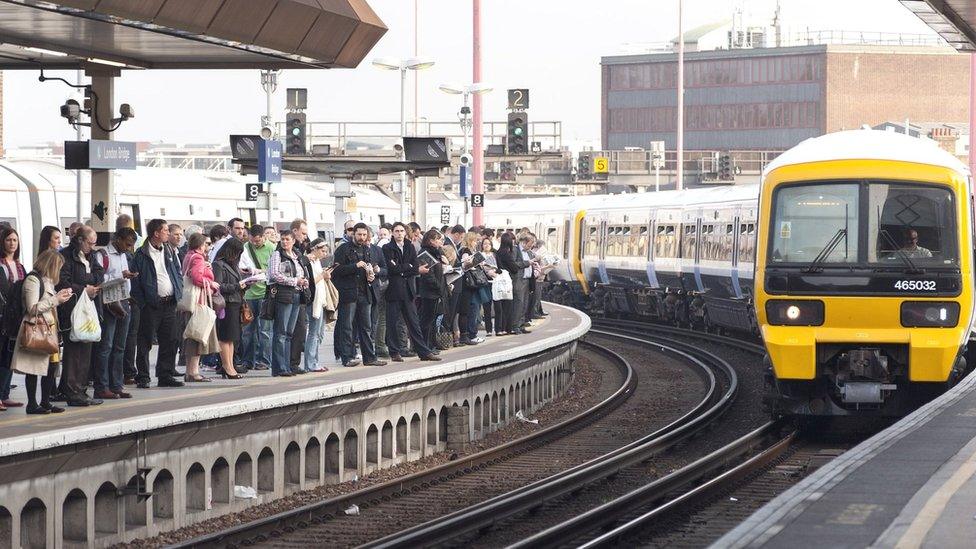
- Published11 May 2020
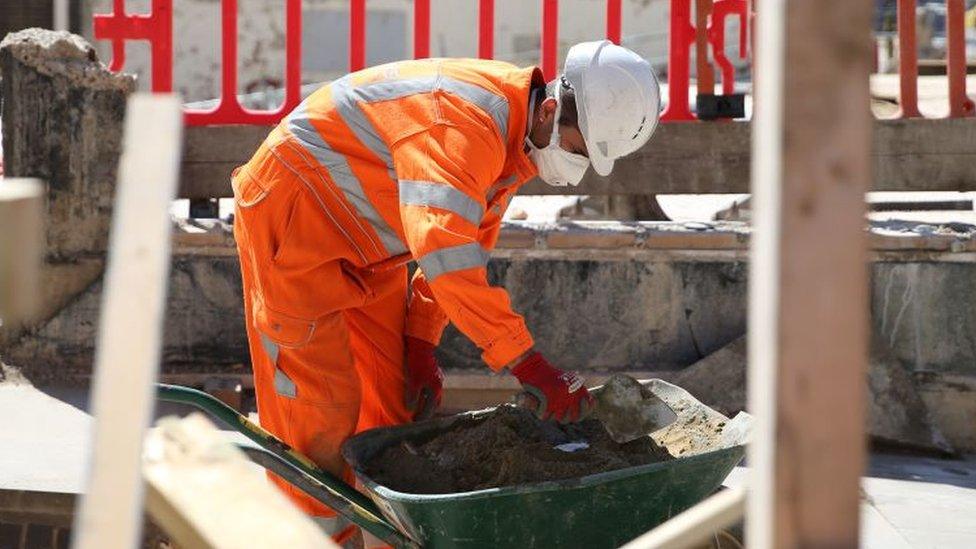
- Published12 May 2020
